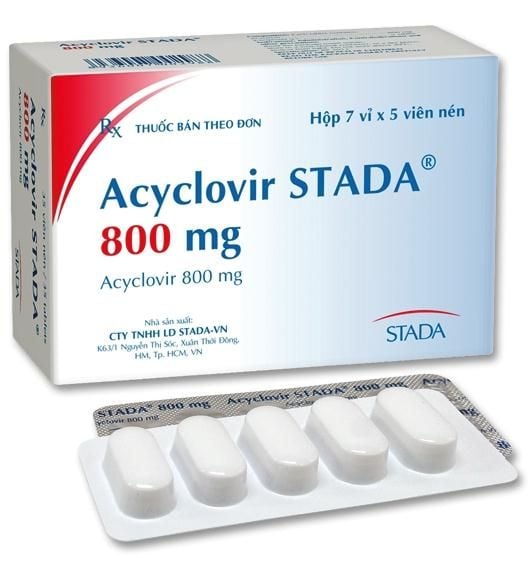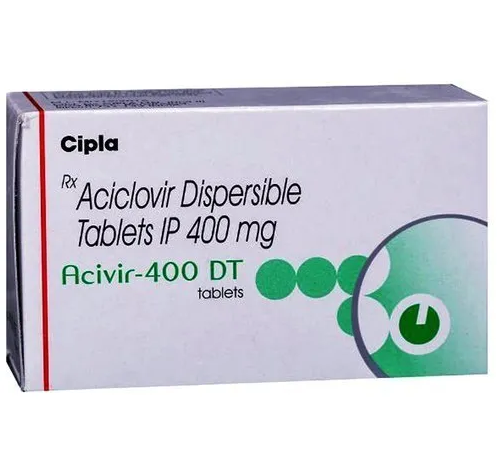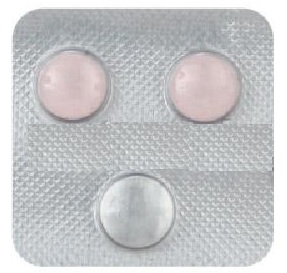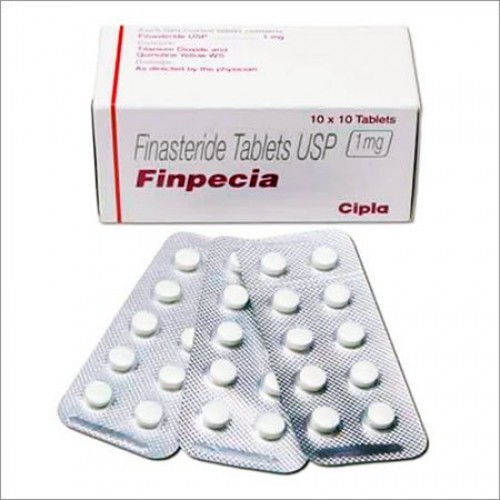Herpes is treated with antivirals, and Valtrex and Acyclovir are the most common antiviral drugs used to treat herpes infections. Acyclovir and Valacyclovir (Valtrex) are prescription medications that are prescribed for the treatment of varicella-zoster virus and herpes simplex virus (HSV). Despite the supposed similarity of both of these antiviral medications, they are different from each other. Keep reading to know more about Acyclovir and Valtrex, their similarities, differences, and effectiveness.
Are Acyclovir and Valtrex the Same? Key Differences Explained

Chemically, Acyclovir and Valacyclovir (Valtrex) are closely related; however, these are not exactly the same drugs. Valacyclovir is Acyclovir’s prodrug. Valtrex is transformed into Acyclovir during first-pass metabolism of oral dosage, allowing more active ingredients to be engrossed from the oral administration of the drug and also allowing more time between multiple doses.
Valtrex is available in the form of tablets only, while Acyclovir is available in the form of capsules, cream, ointment, oral suspension, solution for injection, tablets, and sublingual tablets.
Similarities and Differences Between Valtrex and Acyclovir
The key similarity between both antiviral drugs is the same mechanism of action, and Valacyclovir is changed to Acyclovir as it enters the body. Acyclovir and Valacyclovir (Valtrex) both belong to the nucleoside and nucleotide DNA polymerase inhibitor antiviral class of drugs. Valacyclovir is sold under the brand name Valtrex, and Acyclovir is sold under the brand names Zovirax and SITAVIG.
The standard dosage of Valacyclovir is 1000 mg twice a day (2 -10 days), and Acyclovir is 400 mg thrice a day (5-10 days). Valacyclovir is typically prescribed to children, adolescents, and adult patients, while Acyclovir can be prescribed to neonates, infants, children, adolescents, and adult patients. The exact dosage of both drugs depends on symptoms, severity, age, immune system and complete health.
Valacyclovir is the L-valyl ester (prodrug) of Acyclovir. The first-pass metabolism eliminates most of Acyclovir from circulation, reducing oral bioavailability. On the other hand, first-pass metabolism changes Valacyclovir into Acyclovir, making it available to the body. The oral bioavailability in the case of Acyclovir is just 10-20%, whereas Valacyclovir is as high as 54%. The first-pass metabolism process also makes a difference in how often these medications should be dosed.
How Acyclovir and Valtrex Work (Mechanism of Action)
Both prescription drugs are most commonly prescribed drugs for herpes treatment. As mentioned above, Valtrex (Valacyclovir) is the prodrug of Acyclovir. That means Valacyclovir converts into Acyclovir after it enters the body. Therefore both of the antiviral medications work in the same way. Acyclovir binds the DNA of the virus and averts it from producing more DNA and multiplying.
Valacyclovir begins working against the virus as soon as you take it. It is safe and effective to treat all types of herpes virus, however its dosage vary depending on whether it is used to treat outbreaks of shingles, genital herpes or oral herpes.
These antiviral medications are also prescribed as a part of suppressive therapy in case of herpes to diminish the frequency and severity of outbreaks.
Valtrex vs Acyclovir: Dosage, Effectiveness & Bioavailability
What Is Valtrex (Valacyclovir)? Uses & Benefits
Valtrex is a prescription medication that is approved by FDA to treat infections caused by herpes virus. The drug is accessible in the form of oral tablets 500 mg and 1000 mg. It works by constraining DNA replication.
Valacyclovir is obtainable as a generic drug as well as a brand-name drug. It is among the most prescribed and effective antiviral medications for genital herpes, cold sores, and shingles in adults. Valtrex is also approved for treating cold sores and chickenpox in children.
What Is Acyclovir? Uses, Benefits & Limitations

Acyclovir is also an FDA-approved drug that is prescribed to treat infections caused by herpes viruses. It is available in various forms and strengths to be used depending on the condition and doctor’s instructions. Acyclovir forms and strengths include capsules (200 mg), tablets (400 mg and 800 mg), and oral suspension (200 mg/5 ml). Acyclovir is also accessible in the form of cream and injection. It is prescribed to treat genital herpes and shingles in adults and chicken pox in adults and children.
The oral Acyclovir has comparatively poor bioavailability as it is changed during the first-pass metabolism, which results in poor absorption from the gastrointestinal tract.
Which Is More Effective: Valtrex or Acyclovir?
Valtrex (Valacyclovir) and Acyclovir targets the same viruses and work similarly; however, Valacyclovir has a longer half-life and more bioavailability than Acyclovir. If the patient takes Valacyclovir just a few times every day than Acyclovir, it still provides similar outcomes against viral infections. Typically, Valtrex is prescribed to take twice every day, whereas Acyclovir is prescribed to take up to five times every day, depending on the condition being treated.
Small comparative studies were performed to evaluate which of these antiviral medications is more effective, which failed to clarify any kind of increased efficiency of one drug over the other. However, Valacyclovir is favored in clinical practice as it needs to be dosed less frequently, while Acyclovir is reliant on renal clearance.
In elderly patients, it may be challenging in the context of chronic kidney disease. Nevertheless, Acyclovir can be administered intravenously in case of more severe infections where others can not.
Effectiveness for Genital Herpes: Valtrex vs Acyclovir
In a double-blind, randomized trial, Valacyclovir and Acyclovir were compared for the treatment of the first episodes of genital herpes. Valacyclovir was given twice a day, and Acyclovir was given five times a day. The has shown no clinically noteworthy variance in the duration of pain, lesion healing time, or loss of symptoms.
Valacyclovir has the advantage of fewer doses (2 times a day) than Acyclovir (5 times a day). It reduces the pill load and increases the possibility that patients will easily follow the prescribed regimen until completion.
Your doctor or healthcare provider can better determine the best treatment to treat your genital herpes infection depending on your age, health, and severity of infection; however, twice daily dosing of Valacyclovir can be an advantage.
Effectiveness for Shingles (Herpes Zoster): Valtrex vs Acyclovir
Acyclovir and Valacyclovir are commonly prescribe antivirals for treating shingles. In a randomized, double-blind clinical trial, Valacyclovir and Acyclovir oral doses were compared for treating herpes zoster infection (shingles). The outcomes of this trial found that Valacyclovir significantly speeded up the resolution of pain linked to a shingles rash. Though the rash itself healed at similar times with any treatment regimen, there were rarer complications in patients treated with Valacyclovir.
Another noteworthy advantage of Valacyclovir found in this study is that the drug only needs to be taken three times a day as compared to Acyclovir needs to be taken five times a day. Eventually, your healthcare professional can determine the best-suited treatment option for your active herpes zoster infection.
Valacyclovir for shingles
Valacyclovir performs best when taken 72 hours after the first symptom of shingles or herpes infection also appears in case of recurrent outbreaks. Earlier the treatment, the maximum the outcomes. Also, stay hydrated and make sure to complete the prescribed treatment even if the symptoms begin to disappear after a few doses.
Acyclovir for shingles
It is advised to take Acyclovir as soon as your experience the first symptom. Patients can take the prescribed form of Acyclovir with or without a meal—the bioavailability of Acyclovir is not impacted by food. Make sure you complete the prescribed treatment to treat shingles properly.
Can Valtrex and Acyclovir Treat HSV-1 and HSV-2?

Acyclovir and Valtrex (Valacyclovir) can effectively treat all types of herpes virus with variable doses prescribed to treat genital herpes outbreaks, oral herpes, and shingles. However, many doctors prefer Valacyclovir over Acyclovir to treat herpes because of easier dosing.
Valtrex and Acyclovir have been designated treatments for varicella zoster viruses as well as herpes simplex virus type 1 and 2. The most common infections caused by these viruses are genital herpes, shingles, cold sores, and chicken pox. These medications also have a significant role in the prophylaxis of herpes infections, for example, recurrent genital herpes.
Acyclovir and Valtrex are also used off-label for preventing cytomegalovirus and treating ocular infections associated with shingles. Off-label use means these drugs are not FDA-approved to treat these conditions.
Acyclovir can effectively treat neonatal herpes simplex virus, neonatal herpes simplex virus prophylaxis, herpes simplex encephalitis, varicella zoster encephalitis (off-label), herpes labialis, herpes labialis prophylaxis, herpes genitalis, herpes genitalis prophylaxis, cytomegalovirus prophylaxis (off-label), herpes zoster (shingles), varicella (chickenpox), post-exposure varicella prophylaxis (off-label), herpes simplex ocular infection prophylaxis (off-label), herpes zoster ocular infection (off-label) and acute herpes simplex keratitis.
Valacyclovir treat herpes labialis, herpes labialis prophylaxis, herpes genitalis, herpes genitalis prophylaxis (off-label), cytomegalovirus prophylaxis (off-label), herpes zoster (shingles), varicella (chickenpox), post-exposure varicella prophylaxis (off-label) and herpes zoster ocular infection (off-label).
Additionally, Acyclovir injection can be administered to treat herpes simplex encephalitis (herpes of the brain) in newborn babies, children and adults.
Side Effects: Valtrex vs Acyclovir Compared
Acyclovir and Valtrex both medicines are safe and operative in treating herpes and shingles; however, there may be some possible side effects in some patients. Side effects usually occur when patients do not take medication as prescribed by their doctor or due to drug interactions. So make sure you stick to the prescription schedule and tell your doctor about any drugs or supplements you are taking before taking Valacyclovir or Acyclovir. .
Both medications may have side effects such as nausea, headache, vomiting, diarrhea, and rash. Common side effects of Valtrex include cold symptoms, abdominal pain, joint pain, dizziness, reduced white blood cells, and increased liver enzymes. On the other hand, the most common side effects of Acyclovir include muscle pain, decreased hemoglobin, general malaise, skin rash, anemia, and hypersensitivity reactions.
Valtrex and Acyclovir Drug Interactions
Valtrex and Acyclovir may impact the kidney and liver negatively when not taken carefully. Using these drugs in combination with hepatotoxic and nephrotoxic medications ( Mycophenolate, Foscarnet, theophylline, and Tenofovir) can be dangerous.
As much as the available vaccines can help avoid shingles, the antibody production by the immune system relies on how the patient responds to live attenuated vaccines. Acyclovir and Valacyclovir should not be used before or after the varicella virus vaccine as they can diminish the effectiveness of the vaccine.
Use of Valtrex and Acyclovir During Pregnancy & Breastfeeding
Valtrex and Acyclovir are both considered safe to use during pregnancy. Though no controlled studies have been performed to determine if these antivirals are safe for pregnant women, large observational studies demonstrate reassuring information.
If you have been prescribed cream or ointment to apply on the skin around the breasts, make sure you wash the area with soap and water before breastfeeding a nursing baby.
Which Is Better for Cold Sores: Valtrex or Acyclovir?
Cold sores are small and painful blisters that usually appear around the mouth or lips. Cold sores are caused by Herpes simplex virus type 1. Antiviral medications such as Valacyclovir and Acyclovir are used to treat cold sores, but they do not kill the viruses or cures viral infection.
Antivirals avert viruses by interfering with the viral DNA replication. These drugs treat cold sores by preventing the growth and spread of the herpes virus, reducing the severity of symptoms.
Valacyclovir (Valtrex) treats cold sores by binding to the herpes simplex virus’s DNA and preventing it from multiplying. Acyclovir (Zovirax) treats cold sores by attacking the DNA of the virus and preventing them from reproducing. Both of these medicines do not kill or eliminate the virus from your body. However, it improves symptoms and healing time.
Valacyclovir is considered the most effective treatment for cold sores. It stops the herpes virus from spreading inside the body ad also speeds up the healing process. Acyclovir is also effective against cold sores, but Valacyclovir has a longer duration of action and plasma availability; thus, it needs to be taken just a few times daily.
For the price point, Acyclovir can also be favored to treat cold sores. As Acyclovir also provides similar outcomes and is available at low prices. You just need to take it multiple times a day and maintain correct dosing intervals.
Summary: Valtrex vs Acyclovir – Which Should You Choose?
there is no drug available in the market that can cure herpes. Valtrex and Acyclovir are both safe and effective antivirals to treat symptoms of herpes or shingles. However, proper dosage is required to prevent the occurrence of side effects. In the war of the best viral between Valtrex and Acyclovir, no one is the best herpes medication. Both medications have proven their efficiency against shingles and herpes infections. The key reason, why people prefer Valacyclovir over Acyclovir is its improved bioavailability. The best approach is to consult your healthcare provider, as they can determine the suitable solution for your condition.





